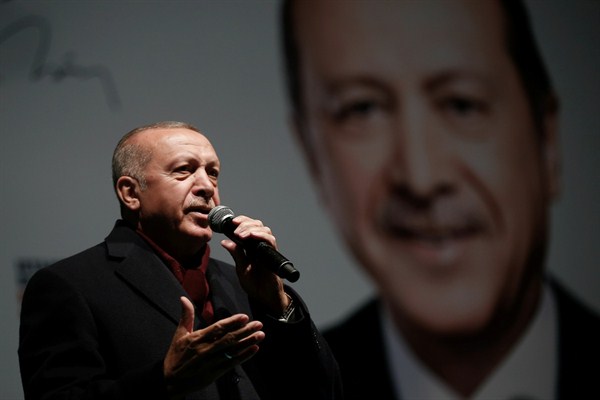Turkish President Recep Tayyip Erdogan and his governing Justice and Development Party, or AKP, are engaged in a no-holds-barred campaign of threats and intimidation against opposition parties ahead of local elections planned for Sunday. Opinion polls have found AKP candidates trailing in key cities like Istanbul and Ankara amid an economic recession that has damaged Erdogan’s political brand. Fearing a resounding defeat at the polls that could undermine his presidency, Erdogan has even said he could intervene to change the results. In an interview with WPR, Sinan Ciddi, executive director of the Institute of Turkish Studies in Washington, explains what’s at stake for Erdogan.
World Politics Review: What are the root causes of Turkey’s recession?
Sinan Ciddi: Turkey’s economic downturn is directly linked to mismanagement at the highest level of government. For years, the Turkish economy has grown on the back of cheap credit, available largely due to quantitative easing measures taken around the world to provide liquidity to the global financial system. Turkey’s private sector took full advantage of this, amassing close to $300 billion in debt, largely provided by international lenders. This inflow of capital spurred a massive construction boom across the country, with high levels of individual borrowing and lavish spending on infrastructure projects such as highways, bridges and airports. At this point, there is no clear plan as to how Turkey’s private sector will be able to honor these debts. The Turkish lira depreciated as much as 40 percent against the dollar in 2018, further increasing the country’s debt burden.

